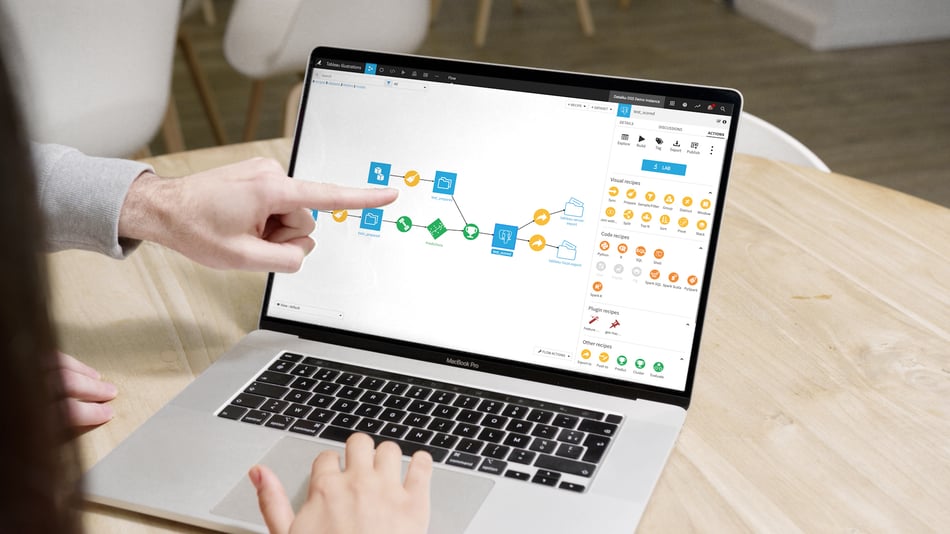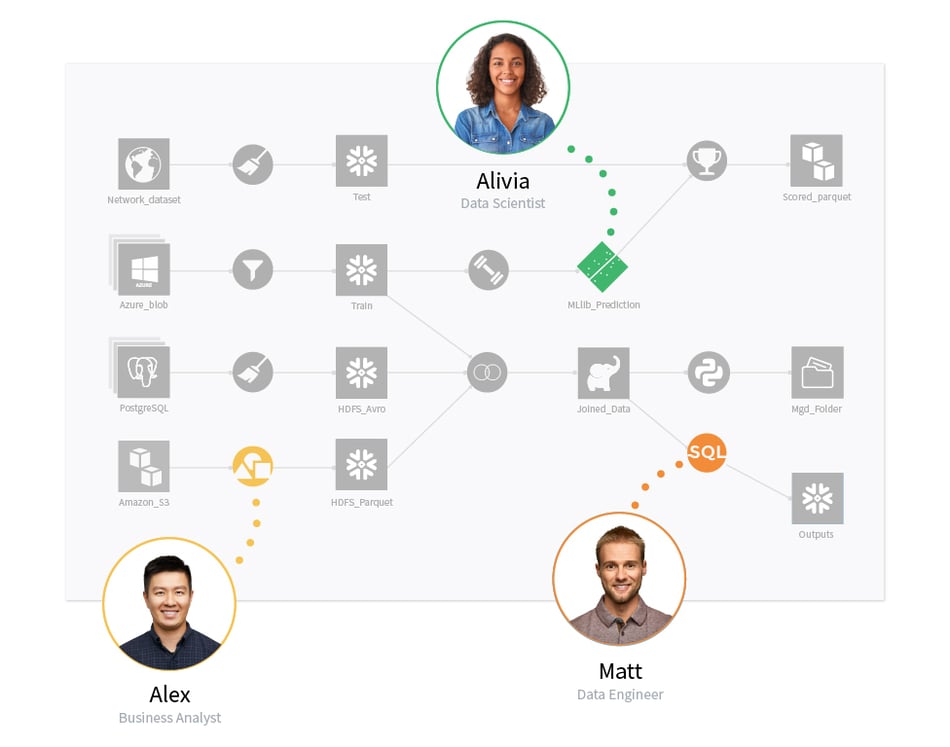As data science, machine learning, and AI have become increasingly popular and competition continues to rise, companies are facing larger-scale projects and need to know where to focus their energy. According to polling results from a Gartner webinar in May 2020, the majority of organizations have been maintaining or even increasing their investments in AI throughout the COVID-19 crisis.
Furthermore, Gartner identified collaboration as one of the most crucial skills to scaling data efforts across the business, as it allows teams to take on larger problems than individuals could tackle alone. Dataiku was built from the ground up to get people to work together — here's how collaboration will make the difference in scaling AI in your business.

Why Collaboration Matters
Collaboration is an art that benefits businesses both large and small — it is a way for everyone in a company to work together on data projects despite having different skills and expertise. Through collaboration, each individual is able to make the most of their strongest skills while learning from others to enhance their weaker abilities. This guides each employee on a continuous path of personal progression and professional development, thus benefiting each individual in the company.
As for the business, collaboration can enrich governance practices as well as the company as a whole by making it become more data driven and efficient. Leveraging AI at a large enough scale to become an organizational asset requires data democratization and enablement, which go hand in hand with collaboration. Democratization implies that data lies in the hands of the many.

Dataiku’s Centralized Collaboration
Dataiku is a platform that provides a central location for distributed or remote teams, providing resources to work faster and smarter together for a more data-driven organization. Dataiku is for everyone, from IT to data scientists, data engineers and software engineers, business people, managers, analysts, and more.
Dataiku handles horizontal collaboration, or people working together with others who have roughly the same skills, toolsets, training, and day-to-day responsibilities, as well as vertical collaboration, or people working across different teams, with ease through a complete suite of features that enable communication and allow both technical and non-technical staff work with data their way.
6 Crucial Pillars of Collaboration, Put Into Practice With Dataiku:
- Communication is key: Dataiku creates a single place for discussion and data projects in the team — a win for governance — that synchronizes with other collaboration platforms such as Slack, Atlassian Confluence, or Microsoft Teams.
- Trust your team: Dataiku’s built-in audit trail logs all actions performed by users, allowing for advanced monitoring and simplifying compliance constraints.
- Embrace diversity: Empower more people within the organization to leverage AI and self-service analytics by visually designing and packaging data projects as reusable applications.
- Remember the common goal: Dataiku is the only all-in-one and centralized data platform that moves businesses along their data journey from analytics at scale to Enterprise AI.
- Resolve and recognize: Publish and share insights from data projects with other users and business stakeholders with custom dashboards.

The unified visual abstraction for analytics and the common ground for experts and explorers are two of many collaboration aspects of Dataiku DSS that make it possible for teams to work together faster and smarter and scale their business into a more data-driven organization.




